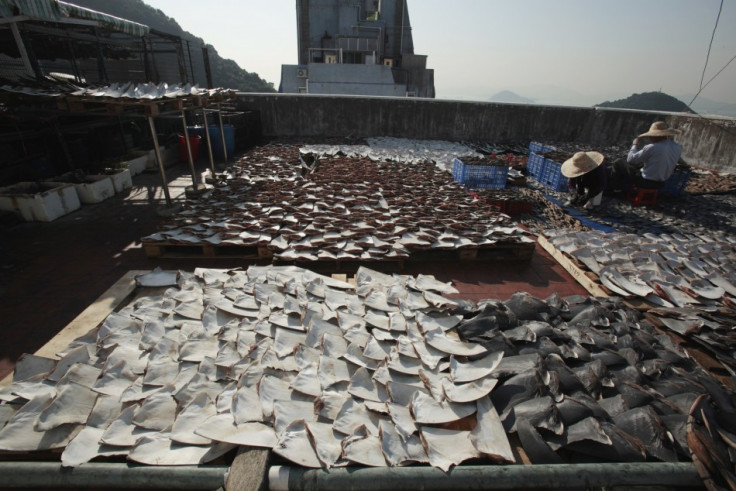Shark Fin Soup off the Menu: Cites Votes to Protect Endangered Species
Five shark species will be better protected under international law

Five endangered shark species have a better chance of survival after conservationists in government agreed greater protection for them under international law.
In Bangkok, governments at the meeting of Cites (the Convention on International Trade in Endangered Species of Wild Fauna and Flora) voted to protect the oceanic whitetip, scalloped hammerhead, great hammerhead, smooth hammerhead and porbeagle sharks.
All five endangered species have been in severe decline because of overfishing for their high-value fins.
In China, shark fin soup is extremely popular and can cost over $100 per bowl. Sharks are caught by fisherman, their fins are cut off and the fish are then thrown back into the ocean.
The five species have been added to Appendix II of Cites, meaning strict measures will be put in place to regulate the international trade of their fins and meat.

Governments have been given 18 months to implement the new measures.
Thesharks are vulnerable to overfishing because they grow slowly, mature late, have long lives and few young so they struggle to recover when stocks are overfished. The ocean whitetip population has declined by over 90 percent.
Glenn Sant, marine programme leader with Traffic, the wildlife trade monitoring network, said: "Today's outcome could be a turning point in how Cites can assist in the regulation of trade in marine species.
"If accepted, this meeting will go down in history as the one where Cites finally realised its marine potential.
"It's a bittersweet day for sharks. While their adoption on Cites is warmly welcomed, it's a sad indictment that their populations have fallen to such a low level that such measures have become a necessity."

Previous attempts to list endangered sharks with Cites have failed because of disagreements over which body would be able to monitor and manage marine species.
There is still the potential to overturn the decision in later meetings.
Carlos Drews, head of WWF's delegation at Cites, said: "Today's decision will go a long way in slowing down the frenzied overfishing of sharks that is pushing them to the brink of collapse to feed the luxury goods market.
"Regulating the trade of marine species like sharks, which are facing unprecedented commercial pressures, is key to saving them and ensuring our oceans contribute to food security by staying healthy and productive."
© Copyright IBTimes 2025. All rights reserved.




















